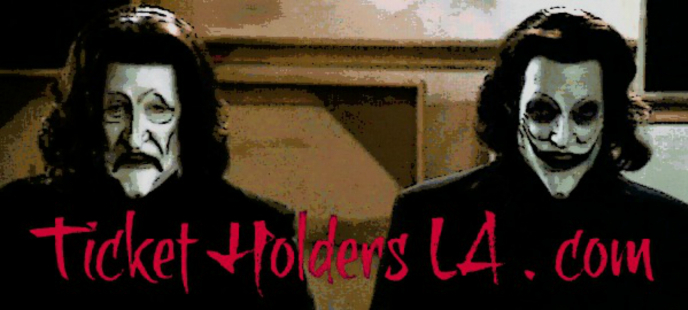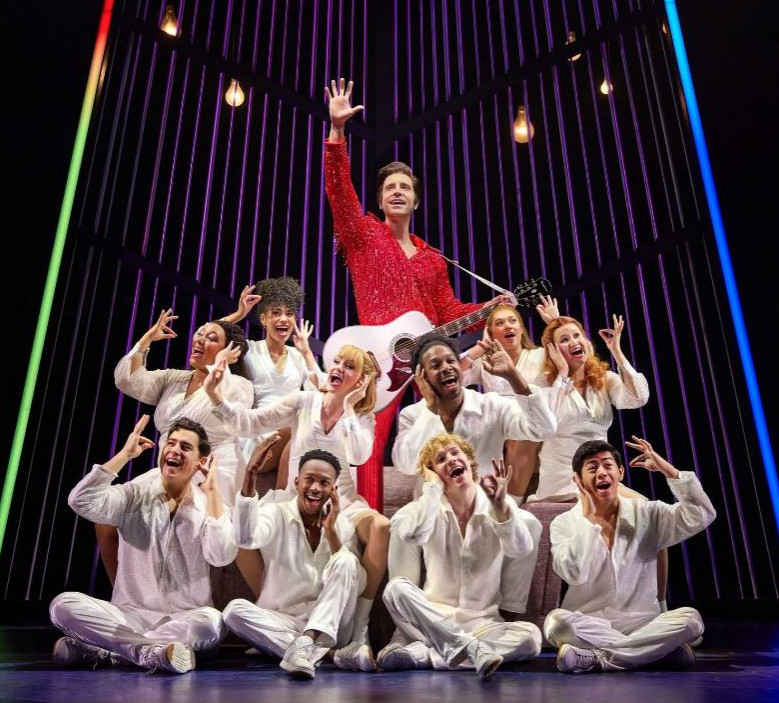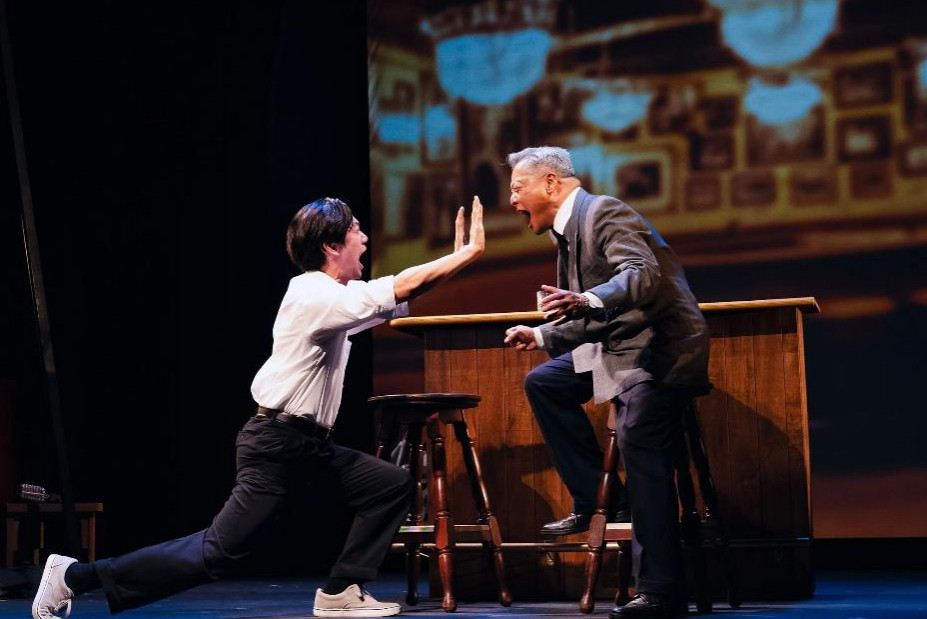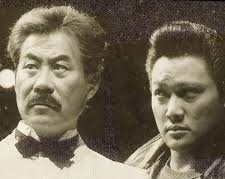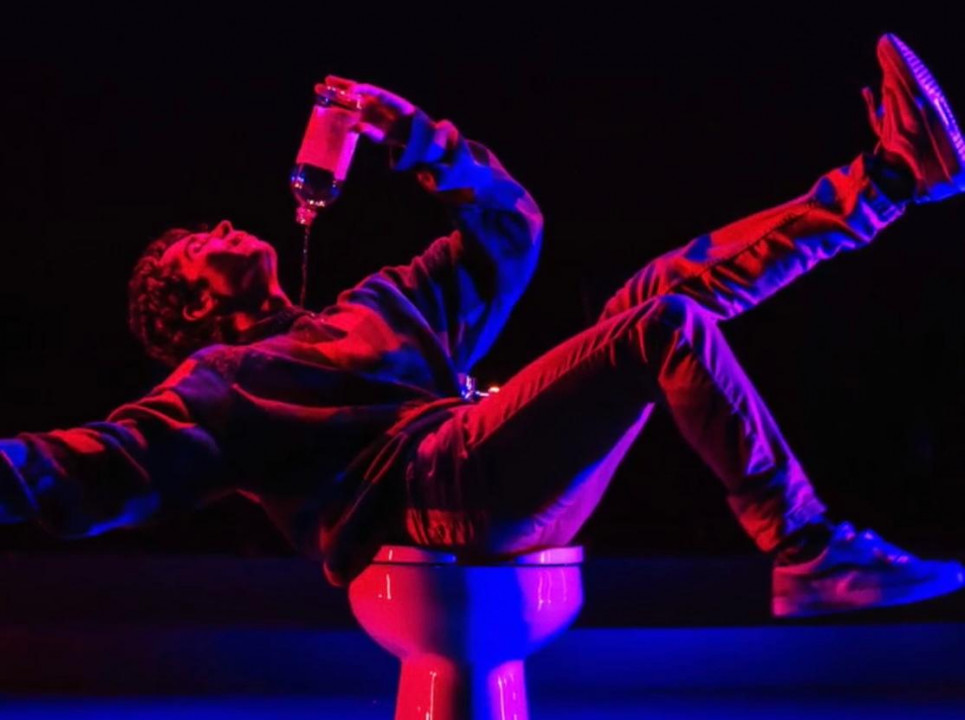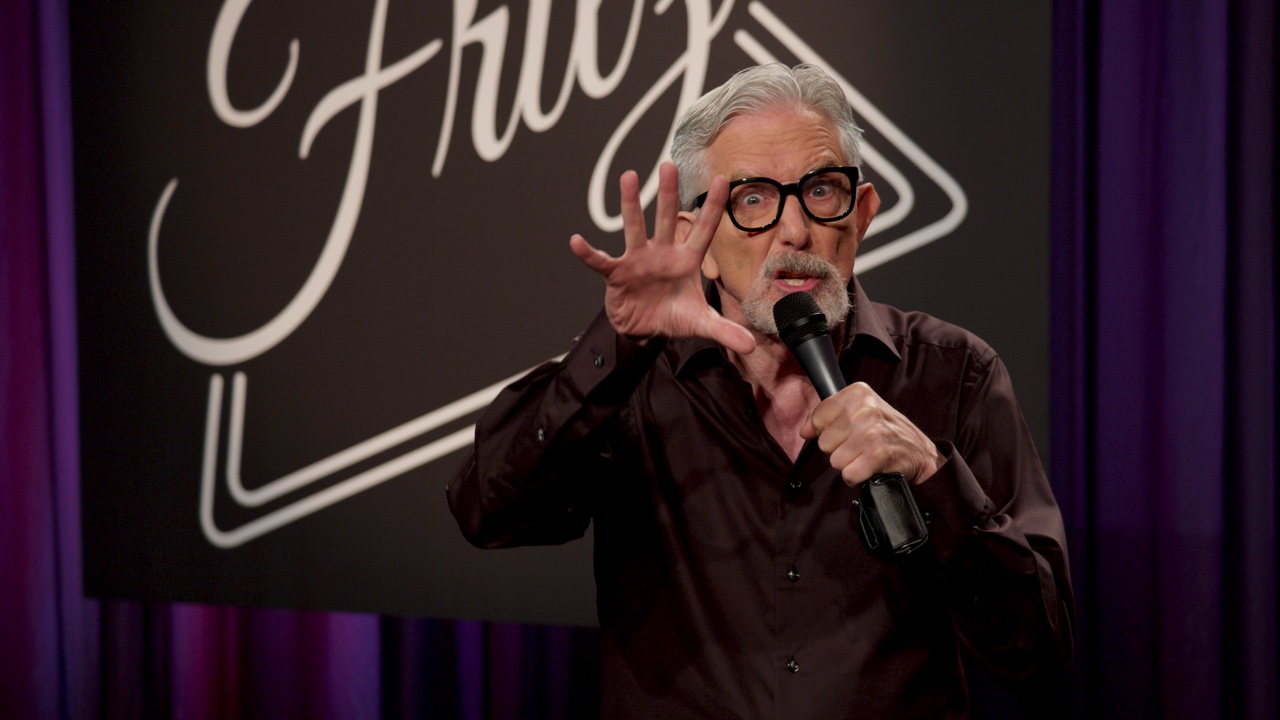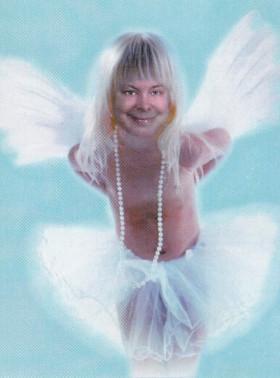- HOME
- CURRENT REVIEWS
- "WAITING FOR WALK"
- FEATURES & INTERVIEWS
- MUSIC & OUT OF TOWN REVIEWS
- RANTS & RAVINGS
- MEMORIES OF GENIUS
- H.A. EAGLEHART: HIEW'S VIEWS
- TRAVIS ART FOR SALE - Collection 1
- TRAVIS ART FOR SALE - Collection 2
- TRAVIS ART FOR SALE - Collection 3
- TRAVIS ART FOR SALE - Collection 4
- TRAVIS ART FOR SALE - Collection 5
- TRAVIS ART FOR SALE - Collection 6
- TRAVIS ART FOR SALE - Saints & Sinners
- TRAVIS ART FOR SALE - Pet Portraits on Commission
- COMPOSER SONATA: Hershey Felder Portraits
- TRAVIS' ANCIENT & NFS ART
- TRAVIS' PHOTOGRAPHY
- PHOTOS: FINDING MY MUSE
- REVIEW ARCHIVES: WINTER 2025 to...
- REVIEW ARCHIVES: SUMMER - WINTER 2024
- REVIEW ARCHIVES: FALL 2023 - SPRING 2024
- REVIEW ARCHIVES: SPRING - SUMMER 2023
- A LIFE IN PHOTOS [1946 - 1996]
- A LIFE IN PHOTOS [1997 - 2015]
- A LIFE IN PHOTOS [2016 - 2018]
- A LIFE IN PHOTOS [2019 - 2021]
- A LIFE IN PHOTOS [2022 - 2023]
- A LIFE IN PHOTOS [2024 to...?]
- TICKETHOLDER AWARDS 2024 - Part One
- TICKETHOLDER AWARDS 2024 - Part Two
- LA DRAMA CRITICS CIRCLE AWARDS 2024
- TRAVIS' ACTING SITE & DEMO REELS: travismichaelholder.com
- CONTACT THLA

EVERYBODY'S GOT ONE
CURRENT REVIEWS
by TRAVIS MICHAEL HOLDER
"Critics watch a battle from a high place then come down to shoot the survivors." ~ Ernest Hemingway
A Beautiful Noise
Photo by Jeremy Daniels
Pantages Theatre / Segerstrom Center for the Performing Arts
It’s a given that most theatre critics are consistently sour on what has become known as “jukebox” musicals—huge, grandly glitzy, even possibly intentionally sterile productions mounted with cashcow commercial success and a future open run in Vegas as the main goal.
I have become far less fault-finding about such presentations, particularly because they thrill audiences and bring the butts of a lot of people who wouldn’t usually attend live theatre into the seats. Besides, I have a special affection for the blatant overindulgence of Vegas, a place where I once spent a lot of time when writing a monthly column about entertainment in Sin City for a national magazine.
Without much deeper thought, I expected the national tour of A Beautiful Noise, now playing at the Pantages, to fall into that category and simply be a traditional “And-Then-I-Wrote” musical featuring the songs and exploring the life story of Neil Diamond. I was resigned to that, especially since reviews in New York were generally mixed.
Indeed, there’s no doubt the Noise-y production numbers could not be more flashy and resplendent—especially as staged by choreographer Stephen Hoggett, creator of the movement in the last tenant of this same theatre, Harry Potter and the Cursed Child, so good it nearly overshadowed the show’s jaw-dropping special effects.
I basically loved just about every aspect combined to create A Beautiful Noise, which almost instantly transcends the dreaded jukebox distinction. Anthony McCarten’s book for the musical begins quietly with Diamond in his retirement years (Robert Westenberg), alone onstage uncomfortably seated opposite a psychotherapist (Lisa Renee Pitts, so memorable in The Father at Pasadena Playhouse a few seasons back) and wishing he could be anywhere else on earth. The infamously insular superstar is there not by his own choice but instead is sitting through what he sees as an agonizing invasion of his privacy at the insistence of his wife Katie.
When the doctor hesitantly mentions the constant companionship of Diamond’s woe-is-me dark cloud of a demeanor, he quickly snaps back, “But what if woe is me?”
As the patient shrink tries valiantly to keep him from bolting, she finds a perfect tool to get the guy to open up: a secondhand copy of a book called The Complete Lyrics of Neil Diamond. As she opens the massive coffee-table-sized tome and starts reading off some of the poetry that, along with a voice once described as “gravel wrapped in velvet,” helped make him a legend, this new intrusion into his fiercely guarded psyche is definitely not something that makes her victim any more comfortable about having his head shrunk. Still, as it all unfolds, the world of the songwriter’s 60-year career begins to come alive all around them. Literally.
To say Diamond’s incredibly prolific body of work takes on a life of its own would be a drastic understatement. Suddenly the stage opens up with 20-something extremely talented triple-threat performers inexplicably popping out from the back of Diamond’s leather chair and, looming behind them, a dynamic 10-piece band appears—all joined together to explore the music and life of one of our time’s most successful and historically melancholy musicmakers.
The scene work recalling pivotal moments in Diamond’s life rises above the usual musical theatre romanticized fluff versions of actual events; nothing is glamorized in telling the story of a man who, besides fame, fortune, and the admiration of millions, never was able to shake off a lonely childhood and a lifelong struggle with depression and self-worth.
In the musical numbers, however, none of the razor-dazzle of Broadway is overlooked or underutilized. David Rockwell’s uber-flashy neon-infused sets, Kevin Adams’ extraordinarily dramatic lighting, and particularly the seat-shaking sound design of Jessica Paz, fills the Pantages as never before—not an easy task considering the majestic one-time movie house’s longtime acoustical challenges.
Under the smooth and imaginative direction of celebrated Tony-winning director Michael Mayer, A Beautiful Noise might have been mounted with profits as a motive for its creation, but that’s nowhere near what it accomplishes.
Perhaps inspired by the equally raw and revealing Jersey Boys before it, the conflicted private life of an icon who has sold some 130 million albums worldwide—surpassing even Elvis—is not glossed over in any way and becomes the surprisingly compelling takeaway from this production.
In the demanding role of the younger Diamond, Nick Fradiani offers a marathon performance. Hardly ever leaving the stage except for frequent costume and wig changes, he plays the singer/songwriter from his hermetically sealed teen years through his early days trying to hawk his wares around Tin Pan Alley, then on through an early “ownership” by the Mob, three marriages, and the breakneck pace of an incomparable career touring the world with a compulsion to escape unhappiness by never stopping.
Fradiani, the 2015 American Idol winner, proves himself to not only be a phenomenal performer, but if you close your eyes and just listen to him sing, you’d swear Diamond himself was calling in the vocals from his home near Aspen—which he actually did for the Pantages’ opening night, by the way, joining in for a rousing finale of the classic “Sweet Caroline.”
You know: Bum-Bum-BAH and all that.
Both Hannah Jewel Kohn and Tiffany Tatreau have memorable moments and breakout solos playing his long-suffering former wives, while Kate A. Mulligan as a crusty Brill Building music producer with a heart of gold steals the show at her every turn.
Although at first Westerberg seemed a tad one-note as the older Diamond, his performance delicately blossoms and enrichens as the story unfolds and his character begins to find a well-deserved sense of peace.
Interestingly, it’s not often that the most compelling thing about a musical production is the work of the ensemble but here, the 10 sensational young artists who make up what the program calls “The Beautiful Noise” become the heart of the production.
Usually a musical’s chorus/dancing ensemble is made up of long-legged, physically uniform Barbie and Ken clones, but not here. As though assembled by Susan Stroman, these folks aren’t your standard gypsy “types” by any means, but they all move and sing and act without missing a beat.
The band, led by keyboardist James Olmstead, is also a tremendous asset, with a huge shoutout to Morgan Parker for some mighty impressive drumming.
No matter how entertaining or lavishly produced a musical may be, it’s not often in my life I can say one of them changed my perspective as clearly as this. I must admit, although some people who know my music business background during the golden age of rock might find it surprising, an appreciation for Neil Diamond was never on the top of my list.
Although for me personally Neil was always a sweet and humble guy to run into during the days when the biggest celebrities on the planet frequented our Troubadour “front bar” as a place where they could hang out unbothered by fans and paparazzi, my tastes always were more about Joplin wailing the blues and an infinity for the Birkenstock-sandaled Lookout Mountain crowd.
My problem was always his delivery, the sequins and fringe and a penchant to stage a show that rivaled the over-produced pizzazz of Liberace.
I certainly enjoyed the precisionally-produced musical excess and fine performances delivered in A Beautiful Noise, but what I will remember most dearly is how it changed my perception of the artist it honors. Thanks to the unexpected depth of Anthony McCarten’s script, the infectious catchiness of Neil Diamond’s music and the genius of his lyrics suddenly superseded the hype and made me understand for the first time that this guy, with his sparkly over-the-top Evel Kneviel wardrobe and extravagant production values, was desperately trying to hide the lonely, broken kid from Brooklyn still crying out from inside.
THROUGH JULY 27: Pantages Theatre, 6233 Hollywood Blvd., Hollywood. 800.982.2787 or broadwayinhollywood.com
JULY 29 THROUGH AUG 10: Segerstrom Center for the Arts, 600 Town Center Dr., Costa Mesa. 714.556.2787 or scfta.org
Yankee Dawg You Die
Photo by Andrew Ge
East West Players
Philip Kan Gotanda’s now classic two-hander Yankee Dawg You Die begins with a chance meeting at a glitzy Hollywood party in 1988 between an overconfident young Asian-American actor on the rise, whose main credit at this point is overshadowed by the rumor that he was almost fired from a play in New York, and an established veteran whose long and successful film career, as what he refers to as an “oriental” performer, has spanned many years and includes an Academy Award nomination for Best Supporting Actor.
The main conflict for the ages is typically generational. Bradley Yamashita (Daniel J. Kim) at first gushes to Vincent Chang (Kelvin Han Yee) about being a longtime avid fan of his work but the more he opens his mouth, the more his proverbial foot gets stuck in it. For Vincent, his career has been playing countless stereotypical Asian roles in low budget movies—a term that Bradley quickly corrects, instead saying that the more contemporary description of the older icon’s career is that he's been working in independent films.
What starts off as an excited outpouring of the newbie’s respect for his elder rapidly turns sour, especially when he mentions one of Vincent’s more recent performances in a movie about Tokyo being attacked by a giant salamander, featuring the actor appearing with overgrown hairy facial appliances, made him “look like a fucking chimpanzee.”
The ongoing clash between these two perspectives is quickly evident. Vincent is proud he’s worked steadily in film for years and has never turned down a part offered him. Bradley sees it differently, later referring to his predecessor as someone who spent his life acting like a Chinese Stepin Fetchit.
Indeed, despite his Oscar nomination, most of Vincent’s roles through the years had been playing Vietnamese prison commandants, genuflecting waiters, and other standardized Asian characters, all roles he played willingly while riding along on the wave of what much earlier in vaudeville was derogatorily dubbed the Chop Suey Circuit.
Gotanda’s groundbreaking Yankee Dawg, now in an electrically charged revival at East West Players chosen to honor the company’s prestigious 60th anniversary year, was first performed at Berkeley Rep in 1988 before being brought to Los Angeles Theatre Center later that year and journeying on to a much-acclaimed run off-Broadway at Playwrights Horizons in 1989.
It was first revived at East West Players in 2001 and the fact that all these years later it is still an important seminal work in the canon of Asian American theatre makes it the perfect choice to mount again nearly a quarter-century later. The conflicts that develop between the brash hopeful, who believes with all of his naivete that he can break barriers and redefine how Asians are represented onscreen, and the world-weary acceptance of his older counterpart who has spent his entire career forced to assimilate into the narrow-minded demands of Hollywood in its heyday, is still a fascinating journey.
Along the way, what initially develops into a prickly adversarial relationship evolves into a bond that changes the life and worldview of each of these two men. Under the visionary direction of Jennifer Chang, who inventively modernizes the production by incorporating live and recorded video projections into this retelling of Gotanda’s cautionary tale, it could not be more pertinent today.
Keeping in mind that much has changed in our industry and Asian actors have today indeed been afforded far more respect and appreciation in our insular universe of arts creation, the world around us still has a long way to go to catch up.
Kim makes an auspicious EWP debut as Bradley, able to find both the character’s early cockiness and, through the production’s intermissionless 90 minutes, successfully morphs into a more accepting guy who finds an all-new respect for someone who might not be that different from him after all.
Still, it is Yee who makes the most solid and indelible impression as Vincent Chang, especially when he stops being respectfully polite and makes sure this upstart knows he wouldn’t be anywhere near where he is in his career if it wasn’t for all the crap that he and his generation silently endured just to survive in the hardhearted and brutal business called show.
Added to the many wonders of this magical and important return of Yankee Dawg and Gotanda’s insightful exploration of Asian American identity and early representation in the entertainment industry is the fact that
Yee originally played the younger character in that very first production at Berkeley Rep nearly 40 years ago. How I wish I could jump into my handydandy time machine and return to see that production in which he starred opposite iconic actor Sab Shimono who, luckily for opening night audiences at EWP last Sunday, made a surprise appearance and joined the actors, director, and playwright onstage for a prolonged and enthusiastic standing ovation.
Shimono and Yee at Berkeley Rep, 1988
We must remember as our country and all we hold dear crashes and burns around us at this terrifying crossroads in the course of human history that it is art that slowly and gradually heals the world. Philip Kan Gotanda’s exceptional wordsmithery helped change the perception and acceptance of Asian actors over the course of the last 37 years—and obviously continues to do so. Much has been accomplished since Yankee Dawg You Die first debuted, yet indisputably we can't stop speaking out now more than ever before.
THROUGH JULY 27: East West Players, 120 Judge John Aiso St., LA. 323.609.7006 or eastwestplayers.org
The Reservoir
Photo by Jeff Lorch
Geffen Playhouse
A new play about struggling with addiction, dealing with cognitively aging grandparents, and winning back a parent who’s given up on you. Sounds like a laugh a minute, doesn’t it? Well, surprisingly, it is.
The world premiere of The Reservoir at the Geffen heralds the auspicious professional playwrighting debut of Jake Brasch, someone with a unique ability to reveal more autobiographical shit about himself than even Jonathan Safran Foer could call forth—and who with this play instantly emerges as a major dramatist with a career to watch as it rockets to the heights.
On Takeshi Taka’s minimalist abstract set possibly meant to conjure a CT-scan slide of Brasch’s brain, The Reservoir begins as the writer’s alter-ego Josh (Jake Horowitz in a phenomenal, marathon performance) wakes up on the shore of a Denver reservoir with coughed-up schmutz caked on down the front of his Cosby sweater and little idea how he got there.
Having taken a medical leave from NYU, where’s he’s been a theatre major considering writing a queer-themed 12-step-oriented musical called Rock Bottom, it seems Josh instinctively headed home to Colorado to see if he could once again get sober with the help of his family. His long-suffering mother (Marin Hinkle) has been through this process many times before with her chronically alcoholic mess of a son, however, and isn’t exactly anxious to open her arms for another dose of heartache.
Josh turns to his grandparents for solace and acceptance, but in doing so realizes both sets of his eclectic elders are overwhelmed by problems of their own.
All four of his once-sharply focused grandparents are in the midst of some degree of cognitive decline and Josh, in an effort to save himself through becoming a champion determined to help slow their symptoms, discovers the concept of Cognitive Reserve, a theory that by keeping the mind and body challenged, the descent into dementia and Alzheimer’s can be diminished.
Of course, this is an admirable mission, but is it more about distracting himself to keep him from drinking vanilla extract by the bottle than it is saving them?
It’s obvious and hardly a secret that Brasch is writing about his own recovery and his own struggles with sobriety and finding his way through questions regarding his sexuality, his sense of worth, and trying to unravel how his Jewish roots figure into his battle against those incessant demons.
Creating this amazing work of incredibly personal art is a gift for us all—and the fact that Brasch can accomplish bringing us along on his difficult quest with such a welcomingly twisted sense of humor is revelatory.
His maternal grandmother Irene (Carolyn Mignini) is the worst off, relegated to a care facility and, although no longer really capable of holding a conversation or even acknowledging Josh’s presence, she can sing a few verses of unseasonal Crissmiss carols like a retired member of the Mormon Tabernacle Choir.
Her husband Hank (Geoffrey Wade), although still With Us, seems totally unaware of his descendant’s all-too public struggles when he runs into him at a bookstore while looking for a copy of The Fountainhead to give to his gastroenterologist, while his paternal granddad Shrimpy (Lee Wilkof) is not only enlightened but more than willing to make some knee-slapping jokes about Josh’s drinking or his sexuality.
Still, Josh’s strongest bond is with Shrimpy’s ex Beverly (Liz Larsen), a feisty no-nonsense electrical engineer who helps her grandson more than any of the others—even though she professes outright that she would prefer not to have to be so close and nurturing with him.
Director Shelley Butler is the quintessential partner for the unstoppable imagination and quirky style of Brasch, collaborating with him to implement his balls-out narrative devises, including moments when light changes signal that Josh has left the scene and is instead talking directly to us—prompting after one such episode for Beverly to ask him, “Where do you go when you do that?”
In fact, both pairs of grandparents stay seated upstage through most of the action, ready to step into the story at a moment’s notice and willing to comment on what’s happening even if they’re not really there. It’s a fascinating and wildly inventive example of the lack of limits inherent in creating theatrical magic.
Along the way, as Josh desperately attempts to heal, Brasch finds moments to mine humor in unexpected ways, sending up everything from vegan anarchist co-ops to senior aerobics (with Hinkle doubling as an ‘80s-esque Jane Fonda-like exercise guru who introduces herself as “I’m Jeanette and I’m a visionary”), and on to Shrimpy’s admission that he’s 85% straight but likes to look at images of dicks on his computer.
To say Butler’s cast is golden is a huge understatement. Horowitz is absolutely stunning as Josh, one of those roles that could make any actor sleep 18 hours a day between performances to keep from crashing.
All four actors playing his goofy grandparents are superlative, especially Wilkof’s charmingly off-kilter Shrimpy (no one’s called him Milton since grade school), who refers to his recently diagnosed condition as “diet Alzheimer’s,” and Larsen, who gives a standout tour-de-force performance as the tough but loving Beverly.
Hinkle is almost unrecognizable as she zips between supporting characters, as is Adrian Gonzalez playing a series of characters, including a beach cop, an abrasive psychologist author, and especially as Josh’s patient manager at a local bookstore who's hiding some heady secrets of his own.
This troupe of veteran performers are the heart of The Reservoir, which would never work as well without such talent and a palpable willingness to believe in Brasch’s outrageous over-the-top characters.
Still, it’s all about the discovery of a brilliant new dramatist whose star, with this exceptional debut, has clearly been launched into the stratosphere and I suspect will soon be recognized as one of the brightest in the galaxy.
As it was with early Durang or Charles Mee, some people might be a tad put off by Jake Brasch’s idiosyncrasies, his intrepid honestly, and his willingness to bare his soul, not to mention his delightfully skewed and inappropriate playfulness dealing with some usually dead serious subjects.
Personally, as a longtime primary caregiver to a partner slowly disappearing into dementia and Alzheimer’s, I was more than ready for a good swift kick in my poor-me pants provided by his bold and dark sense of humor.
“How many Alzheimer’s patients does it take to screw in a lightbulb?,” Shrimpy asks.
“To get to the other side.”
THROUGH JULY 20: Geffen Playhouse, 10886 Le Conte Av., Westwood. 310.208.5454 or geffenplayhouse.org
Unassisted Residency
El Portal Theatre
Longtime Los Angeles weatherman Fritz Coleman retired in 2020 after four decades delivering his signature uncannily cheery forecasts on a daily basis but at age 76, his solo show Unassisted Residency, which plays once monthly at the El Portal’s intimate Monroe Forum, proves he’s still got the chops to deliver a jocular and lighthearted tsunami to his eager and most loyal fans.
Coleman began his career coming to LA to pursue his passion for standup comedy in the early 80s after first achieving success as a well-loved deejay radio personality in Buffalo, New York.
As the story goes, a producer at NBC caught his act one night at a local club and began to woo him to become a weatherman at KNBC-TV since our weather here was so consistent that he felt it needed a little on-air boost of humor to make it more interesting.
Delivering the daily forecast with a twinkle in his eye beginning in 1984 didn’t stop Coleman from continuing to chase his original dream by performing on local stages in several successful live shows, including his hilarious award-winning turn in The Reception: It’s Me, Dad! which played around town for several years to sold out houses.
Now, after leaving NBC four years ago, Coleman is back but the demographics have changed—or I might politely say… matured.
In my own case, as someone a year older than Coleman, his focus on finding the humor in aging is most welcome. In Unassisted Residency, the comedian talks about the challenges life has to offer in these, our so-called golden years, from physical deterioration to losing contemporaries on a regular basis to navigating the brave new world of technology and social media.
As his opening warmup act, the very funny and professionally self-deprecating Wendy Liebman notes, while looking out at the sea of gray hair and Hawaiian camp shirts in their audience, that Coleman chose to present his show as Sunday matinees so his target audience can shuffle our drooping derrières on home before dark.
Along the way, he also tackles subjects such as retirement communities, nonstop doctors’ appointments, incontinence, and Viagra, not to mention having grown up sucking in our parents’ omnipresent clouds of secondhand tobacco smoke and that generation’s lackadaisical attitude toward our safety and our health, all before moving on discuss to his all-new admiration for those heroic modern educators who during the pandemic had the patience to deal with zoom-teaching his grandkids.
The one thing he doesn’t talk much about is the weather—that is beyond mentioning how grateful he is that our current heat wave didn’t deter those gathered from venturing out of our caves and offering as a throwaway that one of the reasons he retired four years ago was climate change. Although he never says it, he doesn’t really have to; we get that even for someone as funny as Coleman, everyone has their limits when it comes to the potentially catastrophic future for our poor misused and abused planet.
Then when he launches into reminiscing about the amazingly incessant search for sexual gratification in our younger years (that time Stephen King once wrote when the males of the species all look at life through a spermy haze) and how that has changed since then. As a now single guy still looking for love—with some choice remarks about online dating sites—he tells a rather steamy tale about one date that proves it ain’t over ‘til it’s over, something of which I can definitely relate.
I first met Coleman in 1988 or 1989 when I did a feature interview with him as a cover story for The Tolucan (the more industry-oriented and less Evening Women’s Club-ish-pandering predecessor of the Tolucan Times).
He was gracious and charming and kept me laughing so hard back then that I couldn’t take notes fast enough, a knack he not only hasn’t lost but has sharpened considerably over the past 40 years. I couldn’t help wondering how many of the audience members at the Forum have been following him since then and for whom the topic of not-so gently aging hits home as dead-center as it did me.
This doesn’t mean you have to be 70-something to appreciate Fritz Coleman’s hilarious gift for creating homespun storytelling in his ever-extending monthly outing called Unassisted Residency.
My partner Hugh, who is a mere 42 years my junior and was quite literally at least three decades younger than anyone else in the audience last Sunday, laughed longer and louder than anyone else in the audience—perhaps a reaction to hearing me bitch continuously about getting old for the last 12 years?
PLAYS one Sunday each month at the El Portal Theatre’s Monroe Forum Theatre, 5269 Lankershim Blvd., NoHo. For schedule: www.elportaltheatre.com/fritzcoleman.html
